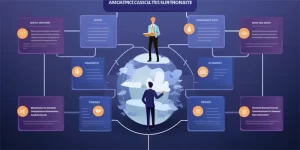YouTube has become the go-to platform for countless users worldwide to share and monetize their video content. However, the question remains: at what number of views does YouTube actually start making money for its creators? In this article, we will delve into various aspects that determine when YouTube creators can start earning revenue through their videos.

The Eligibility Criteria for Monetization
Before exploring the specific view count needed to start earning money on YouTube, it is vital to understand the eligibility criteria for monetization. In order to monetize their content, creators are required to adhere to certain guidelines set by YouTube:
1. Subscriber Count:
A minimum of 1,000 subscribers is required on a channel in order to be eligible for the YouTube Partner Program.
2. Watch Time:
The channel should have accumulated at least 4,000 watch hours in the past 12 months to qualify for monetization.
The Impact of Ads on Revenue
Once a creator has fulfilled the eligibility criteria, they can start earning money through various revenue streams, with advertisements being the primary source. However, it is important to note that the number of views alone does not determine the revenue generated. Here are some factors that affect ad revenue:
1. Ad Formats and Placement:
The type of ads displayed and their placement in a video significantly impact the revenue. Pre-roll, mid-roll, and post-roll ads have different earning potentials.
2. Advertiser Demand:
The demand from advertisers in a particular niche or industry can influence the availability and pricing of ads.
3. User Behavior:
The audience’s engagement with ads, such as ad skipping or clicking, can affect revenue. Higher engagement rates may lead to better ad performance and subsequent revenue.
The Role of CPM and RPM
Two key metrics, CPM (Cost Per Mille) and RPM (Revenue Per Mille), play a crucial role in determining the earnings based on views:
1. CPM:
CPM represents the cost an advertiser pays for a thousand ad impressions. Higher CPM rates can significantly increase the revenue generated per view.
2. RPM:
RPM measures the estimated revenue a creator will earn for every thousand views on their video. It incorporates various factors like ad revenue, YouTube’s share, and other monetization sources.
Additional Revenue Streams
Beyond ad revenue, YouTube creators can explore additional avenues to supplement their earnings, such as:
1. Channel Memberships:
Creators can offer exclusive perks and content to their subscribers for a monthly fee.
2. Sponsored Content:
Securing brand collaborations and endorsement deals provides additional income opportunities.
3. Merchandise and Product Sales:
Creators can sell merchandise or promote their own products to their audience, generating additional revenue.
Conclusion
While there is no specific view count that guarantees income on YouTube, meeting the eligibility criteria is crucial. The revenue generated through ads is influenced by various factors, including ad formats, advertiser demand, and user behavior. Additionally, metrics like CPM and RPM play a vital role in determining earnings per view. Exploring additional revenue streams such as channel memberships, sponsored content, and merchandise sales can further enhance a creator’s income on YouTube.
References:
1. YouTube Partner Program Policy: https://support.google.com/youtube/answer/72857
2. Understanding YouTube CPM and RPM: https://www.quora.com/What-is-the-difference-between-YouTube-CPM-and-RPM
3. Earning money on YouTube: https://creatoracademy.youtube.com/page/lesson/revenue-basics#strategies-zippy-link-5
Author: [Author’s Name]
Image credits: [Image Name/Description]








